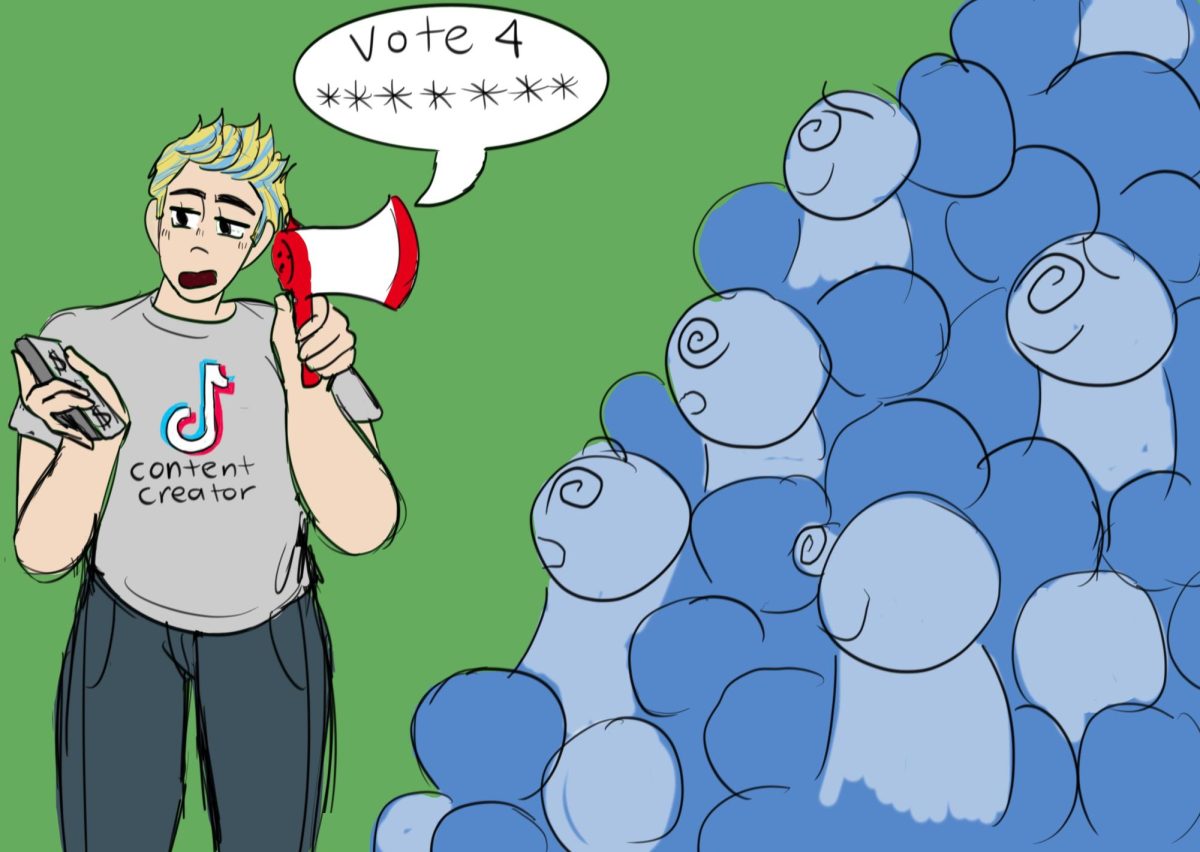A prominent issue on school campuses is the overuse of smartphones. Students leave their phones on the edge of their desk anticipating when the next moment they would receive a notification to answer it. The only solution school officials found to be the most effective to stop students from using their phones in class is to create school policies prohibiting smartphones in classrooms or on school campuses. Although some students may disagree with this decision, it is for their best interest that these policies be enacted.
This policy is nothing new to some states in the United States (U.S.) and other countries. According to New York Times, an American mass-media daily newspaper, in early 2023, Florida passed a law requiring public schools statewide to ban smartphone usage during class time. This statewide rule was implemented to reduce the amount of distractions in a classroom—allowing students to be attentive during lessons.
This issue extends far past from students being on their phone while in class. Social media usage outside of classrooms is one of the causes of why students find it so difficult to get off their phones when needed. K-12 Dive, an online journalism website, found that smartphones have decreased students’ attention spans especially with social media platforms where users mindlessly scroll through posts and videos. These videos cause students attention span to lower through the overwhelming media they are consuming by the second to then swipe to the next content.
The majority of students end up using their phones as they get bored through a long lesson, which is why an alternative is introducing more “mental break” activities. Some helpful options teachers can consider are taking their students outside to work on assignments rather than solely staying in the classroom for the full period. According to an article by Harvard Health Publishing, the consumer health information division of Harvard Medical School, going outside is a good regimen to “reap both physical and mental health effects.”
An example of why offline mental breaks are proven to be more effective than smartphone breaks is presented through a study “Need a Mental Break? Avoid Your Cell Phone, Rutgers Researchers Say,” coauthored by Rutgers Business School doctoral candidate Sanghoon Kang. Kang conducted a study by assigning college undergraduates to complete a set of word puzzles where some were allowed to take breaks with or without their phones, or were given no break at all. The results of Kang’s experiment was that the participants who took phone breaks, “were among the least capable of solving the puzzles afterwards and took nineteen percent longer to complete the task.”
Another beneficial solution to consider is for schools to limit the amount of technology used in a classroom. Commonly used online apps like Google Classroom, Canva and EdPuzzle require students to spend more time on their devices to complete assignments—further affecting their attention span and technology usage. If teachers used the traditional method of paper assignments, it would be beneficial in a variety of ways. This transitional period of why technology is more prone to be used can be linked back to the COVID-19 pandemic where online school resources became more necessary and available than ever.
According to InnerDrive, an online website that informs teachers and students about performance psychology in education, states, “Primary school and secondary school leaders have noticed that students had lost key skills and essential knowledge due to the first national lockdown.” The impact of the pandemic led to a decline in reading comprehension and lack of practical subjects due to the lack of hands-on experience.
Although some students may argue that it is necessary to be able to have an accessible smartphone in case of an emergency, the majority of students do not use it for that intention. To prevent unreasonable excuses, schools need to enforce a system to limit phone usage. Although phones are an efficient way of communicating, it creates more harm for students in a school environment than it seems to profit.








